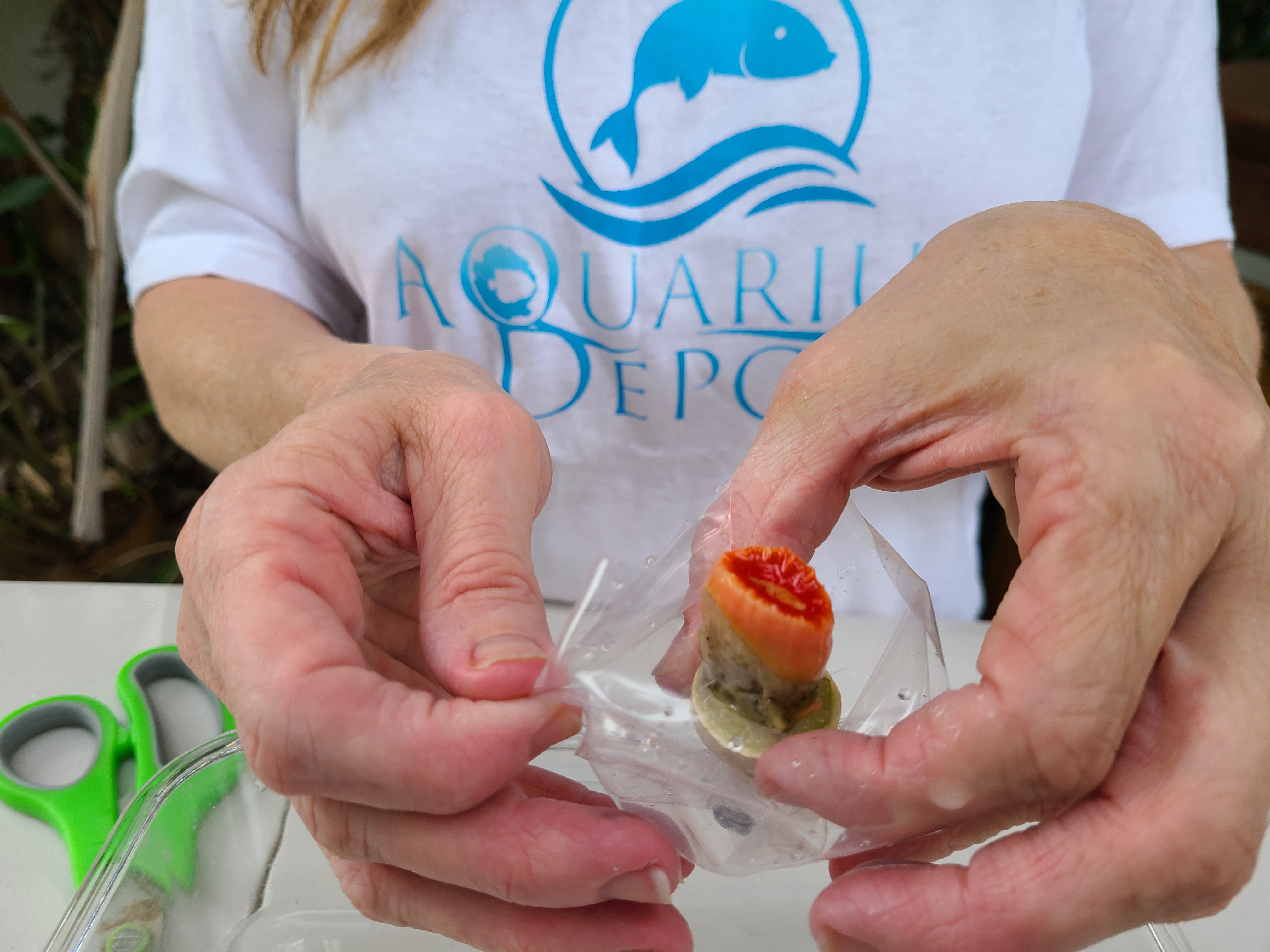Coral Acclimation
*****Please do not use styro container as holding container during acclimation. The styro has chemicals on it which can be harmful to animals.*****
|
PLEASE WATCH THE VIDEO ABOVE TO LISTEN TO CHRISTINA ON CORAL ACCLIMATION WITH TIPS AND TRICKS!! WANT TO DOSE PHYTO THE RIGHT WAY? WATCH THIS VIDEO - DOSING PHYTO PARAMETERS TO WATCH FOR: CLICK HERE - PARAMETERS IF A CORAL COMES OFF THE PLUG - WATCH THIS VIDEO - REGLUEING CORALS
|
It is very important to acclimate corals both to temperature, pH, salinity and light.
1. Temperature / pH and Salinity Acclimation: Shipping is a stressful experience. Treating your coral with TLC for the first few days will help insure long-term success. The method described in our video above will allow this process to occur slowly, over a period of 1-2 hours, which provides the best results for success.
2. Light - Place the newly acclimated animals at mid-tank or lower for the first few days, with mild alternating current. After a few days to a week most corals may be placed in their final location. For SPS corals, it is best to keep them in a lower lighting area for at least 1 week then reposition them slowly over the course of a few weeks to their final positions in the tank. Too much light too soon = sunburn= death
****CORALS: IMPORTANT NOTE******
Many species of coral will not open for several days or weeks after introduction into their new home. Please allow time for the new addition to adapt to their new home, we cover our shipments for a full 14 days so you have the opportunity to allow them to adapt and open. Some live corals, especially leathers, and some SPS can produce excess slime when shipped. After acclimation, hold the coral by the rock or skeletal base and shake the coral in the acclimation bin before adding it to your tank. To avoid damaging the coral, please remember never to touch the "fleshy" part of a live coral.
Below are a few pics of corals closed. The first is a pic of a closed Green star Polyp - these get tossed very regularly - as people think they are dead - they are NOT dead - they just are not exposing their polyps at the moment.
The second pic is of a dendro - which is closed. Sun corals are very similar and close up even more. If the coral has color, it is alive. PLEASE NOTE: Sun corals turn white when dead.


|
|
